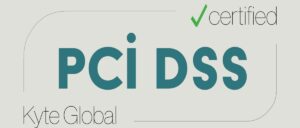This week, both the European Central Bank and Bank of England took further measures to help contain the financial fallout from the coronavirus and alleviate pressure on strained public finances. Franklin Templeton’s David Zahn, Head of European Fixed Income, shares his views on what it means for European bonds.
We saw several major central banks announce monetary stimulus measures in the wake of coronavirus concerns. Most recently, the Bank of England (BoE) cut interest rates to 0.1%, adding further quantitative easing (QE) through increasing the bond purchase programme by £200 billion. We feel this further supports coordinated action taken by the Monetary Policy Committee and the UK government last week. In our view, this should be supportive for the Gilt market as fiscal spending in the United Kingdom ramps up.
The recent volatility in the Gilt market is not supportive of the BoE’s goals, so it is not surprising that policymakers have acted again. This latest action demonstrates that the BoE will continue to provide liquidity to the market and wants to keep interest rates low for the foreseeable future.
Given the BoE has cut rates to 0.1%, their self-defined lower bound, we would anticipate any further easing to would be done through further additional bond purchases. We expect that the BoE will focus on purchasing Gilts over a short time horizon, and therefore Gilts should likely remain well anchored in the coming months.
Meanwhile, the European Central Bank (ECB) attempted to regain credibility this week with the launch of a €750 billion Pandemic Emergency Purchase Programme (PEPP). The size of the programme is what we were hoping for from the ECB’s meeting last week, unveiled after several days of dislocation in European bond markets.
The latest package increased the total of additional QE announced in the past week to €870 billion, which should be enough to help calm European sovereign bond markets. We anticipate it should be most beneficial for Italian, Spanish and Greek government debt, but also should narrow spreads of other European government bonds. This also demonstrates that the ECB will continue to unveil measures to combat the dislocations in the market resulting from the pandemic. The increased QE, combined with the other measures the ECB announced at last week’s meeting, should be very supportive for the eurozone.
We expect monetary policy to remain extremely accommodative and the ECB to support markets, in tandem with the fiscal loosening by European countries, which has been one of ECB President Christine Lagarde’s key demands.
The European Union (EU) also announced a €65 billion package to provide liquidity for firms, as well as help with the coronavirus response, although the amount looks too small for the eurozone, in our view, and we anticipate more assistance should be forthcoming.
However, the EU has also suspended the fiscal parameters of the Stability and Growth Pact, which allows governments room for a fiscal response to the pandemic. Individual countries are already taking action, with Germany relaxing its previous policy of maintaining a fiscal surplus and embarking on a policy of doing “whatever it takes”, mainly using the state development bank KFW to provide unlimited cash to businesses hit by the crisis. The German package looks to be around €460 billion, but could be as much as €550 billion [15% of German gross domestic product (GDP)].
In addition, Spain and France have announced packages of €200 billion and €300 billion, respectively. Italy has only announced a smaller package so far, but we expect a larger, more comprehensive package soon. There have been suggestions that a “pandemic” bond could be issued at the European level, with cross guarantees, to combat the crisis and it appears Germany is mildly supportive. Overall, we think the situation remains very fluid.
Given the sudden halt across European economies, we expect a sizeable hit to GDP this year. These circumstances—and the unknowns surrounding how long the lockdown conditions will last—make it critical that European policymakers at the ECB and the EU, as well as individual governments, are creative and continue to announce ongoing measures to combat the economic fallout from the pandemic. In our view, a combined monetary and fiscal response is the only way to address this systemic event.
Franklin Templeton Key risks & Disclaimers:
Important Legal Information
This material is intended to be of general interest only and should not be construed as individual investment advice or a recommendation or solicitation to buy, sell or hold any security or to adopt any investment strategy. It does not constitute legal or tax advice.
The views expressed are those of the investment manager and the comments, opinions and analyses are rendered as of publication date and may change without notice. The information provided in this material is not intended as a complete analysis of every material fact regarding any country, region or market.
Data from third party sources may have been used in the preparation of this material and Franklin Templeton (“FT”) has not independently verified, validated or audited such data. FT accepts no liability whatsoever for any loss arising from use of this information and reliance upon the comments, opinions and analyses in the material is at the sole discretion of the user.
Products, services and information may not be available in all jurisdictions and are offered outside the U.S. by other FT affiliates and/or their distributors as local laws and regulation permits. Please consult your own professional adviser or Franklin Templeton institutional contact for further information on availability of products and services in your jurisdiction.
Issued in the U.S. by Franklin Templeton Distributors, Inc., One Franklin Parkway, San Mateo, California 94403-1906, (800) DIAL BEN/342-5236, franklintempleton.com—Franklin Templeton Distributors, Inc. is the principal distributor of Franklin Templeton’s U.S. registered products, which are not FDIC insured; may lose value; and are not bank guaranteed and are available only in jurisdictions where an offer or solicitation of such products is permitted under applicable laws and regulation.
CFA® and Chartered Financial Analyst® are trademarks owned by CFA Institute.
What are the risks?
All investments involve risks, including possible loss of principal. The value of investments can go down as well as up, and investors may not get back the full amount invested. Brokerage commissions and ETF expenses will reduce returns. ETF shares may be bought or sold throughout the day at their market price on the exchange on which they are listed. ETFs trade like stocks, fluctuate in market value and may trade above or below the ETF’s net asset value. However, there can be no guarantee that an active trading market for ETF shares will be developed or maintained or that their listing will continue or remain unchanged. While the shares of ETFs are tradable on secondary markets, they may not readily trade in all market conditions and may trade at significant discounts in periods of market stress.
MeDirect Disclaimers:
This information has been accurately reproduced, as received from Franklin Templeton Investment Management Limited (FTIML). No information has been omitted which would render the reproduced information inaccurate or misleading. This information is being distributed by MeDirect Bank (Malta) plc to its customers. The information contained in this document is for general information purposes only and is not intended to provide legal or other professional advice nor does it commit MeDirect Bank (Malta) plc to any obligation whatsoever. The information available in this document is not intended to be a suggestion, recommendation or solicitation to buy, hold or sell, any securities and is not guaranteed as to accuracy or completeness.
The financial instruments discussed in the document may not be suitable for all investors and investors must make their own informed decisions and seek their own advice regarding the appropriateness of investing in financial instruments or implementing strategies discussed herein.
If you invest in this product you may lose some or all of the money you invest. The value of your investment may go down as well as up. A commission or sales fee may be charged at the time of the initial purchase for an investment and may be deducted from the invested amount therefore lowering the size of your investment. Any income you get from this investment may go down as well as up. This product may be affected by changes in currency exchange rate movements thereby affecting your investment return therefrom. The performance figures quoted refer to the past and past performance is not a guarantee of future performance or a reliable guide to future performance. Any decision to invest in a mutual fund should always be based upon the details contained in the Prospectus and Key Investor Information Document (KIID), which may be obtained from MeDirect Bank (Malta) plc.





